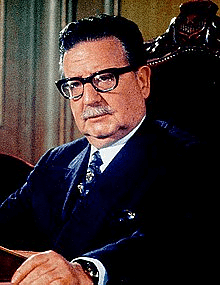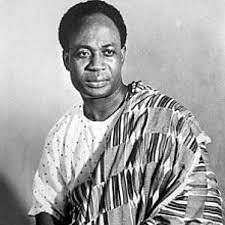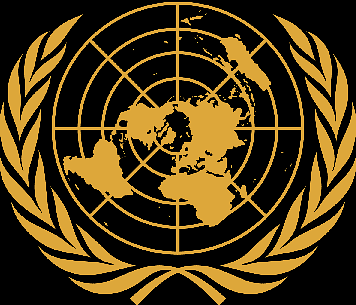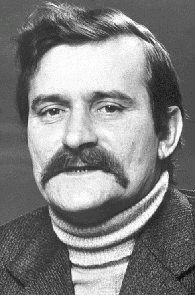Class 9 Civics Chapter 1 Question Answers - Democratic Politics - I
Ques 1. Who was Allende? [Important]
Ans. Allende was the founder leader of the Socialist Party of Chile, a country in South America. He led the Popular Unity Coalition to victory in 1970 and became the President of Chile. As President he took several policy decisions to help the poor and the workers. Fig. Salvador Allende
Fig. Salvador Allende
Ques 2. Why did the workers of Lenin Shipyard in Gdansk go on strike in 1980?
Ans. The workers the Lenin Shipyard in the city of Gdansk went on a strike on 14 Aug 1980. The factory was owned by the government. The workers went on a strike demanding the factory to take back a crane operator, a woman worker, who was unjustly dismissed from the service.
Ques 3. What was the position that Nkrumah enjoyed in Ghana after its independence?
Ans. Ghana became independent in 1957. After independence Nkrumah became the first Prime Minister and than the President of Ghana. He was an inspiration for democrats in Africa, but he got himself elected President for life. Soon after in 1966, he was overthrown by the military. Nkrumah
Nkrumah
Ques 4. What role does General Assembly play in the UN?
Ans. General Assembly is like the Parliament of UN where all the discussions take place. In that sense, the UN would appear to be a very democratic organisation. But the General Assembly cannot take any decision about what action should be taken in a conflict between countries.
Ques 5. State how Security Council helps in making the UN a democratic body.
Ans. The Security Council has 15 members – 5 permanent and 10 non-permanent members. This member Security Council of the the UN takes crucial decisions. However, the real power is with the five permanent members; and they possess the veto power. So, Security Council doesn’t help much in making the UN a democratic body.
Ques 6. Give one example to prove that the global institution, IMF, fails to pass the simple test of democracy that is used for national governments.
Ans. International Monetary Fund (IMF) is one of the biggest moneylenders in the world. But its 173 member states do not have equal voting rights as the vote of each country is weighed by how much money it has contributed to the IMF. Nearly half of the voting power in the IMF is in the hands of only seven countries (US, Japan, France, UK, Saudi Arabia, China and Russia).
Ques 7. Should a democratic country wage a war and invade other countries for establishing democracy there? Give your opinion stating at least one example. [Important]
Ans. In my opinion, the democratic countries do not have any right to wage a war in order to establish democracy in non-democratic countries. The attack of US on Iraq, blaming it for possessing the weapons of mass destruction, was more because of its own ambition than establishment of democracy there. Moreover, unless people of a nation are themselves actively engaged in a struggle to make their society democratic, external help will be hardly of any help.
Ques 8. The functioning of UN Security Council is undemocratic. Justify the statement by giving three suitable examples?
Ans. (i) The real power is with the five permanent members.
(ii) These members have veto power.
(iii)Security council cannot take a decision if these permanent members say No to it.
Ques 9. What policies were adopted by Salvador Allende after his election as President of Chile in 1970? Assess any three reforms.
Ans. (i) Reform of the educational system.
(ii) Free milk for children.
(iii) Redistribution of land to the landless farmers.
Ques 10. 'International Monetary Fund is not truly democratic institution.' Justify this statement with three examples.
Ans. (i) IMF's 173 member states do not have equal voting rights.
(ii) The vote of each country is weighed by how much money it has contributed to the IMF.
(iii) Nearly half of the voting power is in the hands of only seven countries.
 Fig. International Monetary Fund
Fig. International Monetary Fund
Ques 11. Explain any three contributions of UN as a government of the world.
Ans. (i) It is a global association of nations of the world to help in international law security economic development and social equity.
(ii) It maintains peace and security among countries, it can put together on International Army.
(iii) It can take action against the wrong doer.
Ques 12. Who was elected as President of Chile in 1970? What steps did he take to help the poor?
Ans. Salvador Allende was elected president of Chile in 1970.
(i) He reformed education system;
(ii) He provide free milk for children; and
(iii) He arranged redistribution of land to the landless farmers.
Ques 13. ‘The disintegration of the Soviet Union accelerated the process of expansion of democracy.’ Give reasons.
Ans. Disintegration of the Soviet Union accelerated the process of democracy :
(i) As it controlled many of its neighboring communist countries in Eastern Europe.
(ii) Countries controlled by it became democracies.
(iii) Soviet Union comprised 15 Republics. They all emerged as independent countries, most of them as democracies.
Ques 14. How was democracy re-established in Poland?
Ans. Lech Walesa – an electrician, joined the strikers (workers of Lenin Shipyard). He became popular. The government agreed to the workers, demand. An independent trade union was formed. Soon it had one crore members. The government tried to put it down. Another wave of strike followed. This time it resulted in an agreement in 1989 for free elections. Walesa was elected President of Poland.
Ques 15. Give any three features of democracy.
Ans. (i) Allende’s democratic government preferred government control on big industries and economy.
(ii) Walesa wanted the market to be free of government interference.
(iii) Michelle stands somewhere in the middle.
Ques 16. Who was Lech Walesa? How did he become famous in Poland?
Ans. Lech Walesa was a former electrician of the Lenin Shipyard. He joined and then led the striking workers. He signed a 21 point agreement with the government that ended the strike. A new trade union called Solidarity was formed.
General Jaruzeleski imposed martial law. Another wave of strike followed in April 1989. Free election were held. Solidarity won 99 out of 100 seats. Walesa was elected President of Poland.
 Fig. Lech Walesa
Fig. Lech Walesa
Ques 17. Who was Salvador Allende? Why was his policy opposed by the aristocrats?
Ans. Salvador Allende was the President of Chile. The landlords, the rich and the church opposed his reforms and policies.
Ques 18. How did Solidarity come to power in Poland?
Ans. On 11 September 1973 the military took over the seaport. The Defence Minister was arrested by the military. Allende was asked to resign. He addressed the nation on the radio. It was his last speech. He died in a military attack on the president's house.
|
52 videos|437 docs|80 tests
|
FAQs on Class 9 Civics Chapter 1 Question Answers - Democratic Politics - I
| 1. What is democracy and how is it relevant in the contemporary world? |  |
| 2. What are the benefits of democracy? |  |
| 3. How can citizens participate in a democratic system? |  |
| 4. What are the challenges to democracy in the contemporary world? |  |
| 5. How can we strengthen democracy in the contemporary world? |  |

|
Explore Courses for Class 9 exam
|

|


















